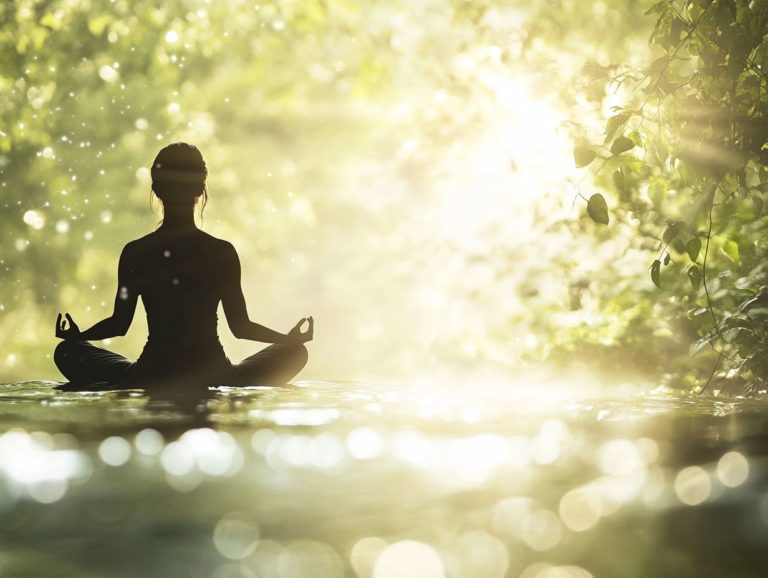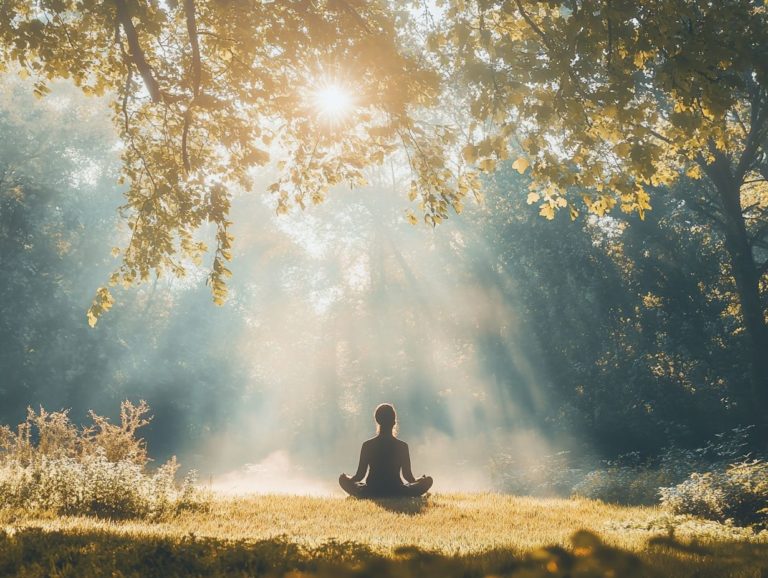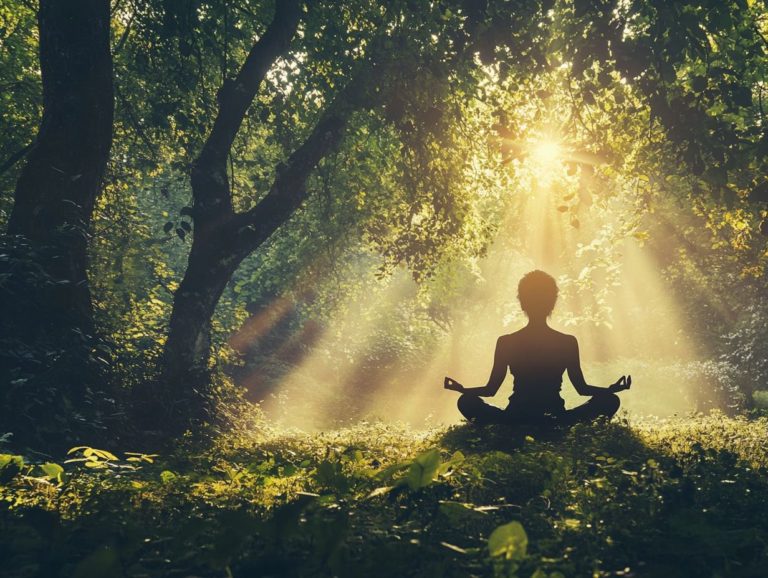Exploring Reiki: A Popular Energy Healing Method
Reiki is an energy healing method that s increasingly sought after for its holistic approach to well-being. Get ready to unlock the secrets of Reiki! This article delves into what Reiki truly is, tracing its rich history embedded in traditional Japanese practices alongside its contemporary adaptations.
You ll discover the myriad physical and emotional benefits it can provide, gain insight into how the concept of energy flow operates, and learn what to expect during a Reiki session. By the time you finish reading, you ll possess a thorough understanding of this practice and have the tools to find the right practitioner tailored to your needs.
Contents
Key Takeaways:
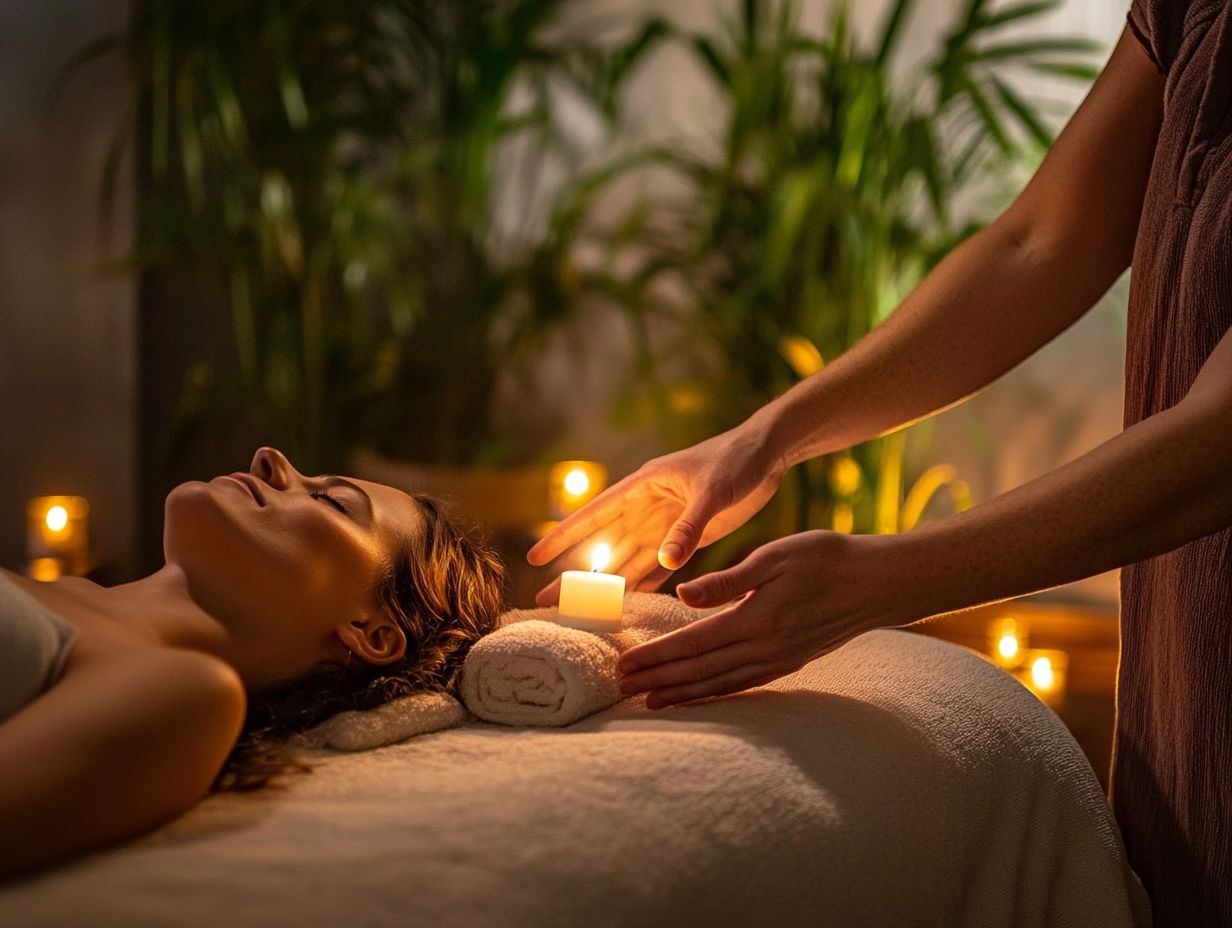
Reiki is an energy healing method that originated in Japan and is now widely practiced around the world. It has been shown to have various benefits, including physical and emotional healing, as well as stress reduction, a topic covered in understanding energy healing and its benefits.
During a Reiki session, the practitioner helps to facilitate the flow of energy in the body, promoting relaxation and balance.
Understanding Reiki
Understanding Reiki is crucial for anyone intrigued by this transformative healing modality, which is deeply rooted in Japanese tradition. It emphasizes channeling healing energy, and exploring the science behind energy healing can enhance your overall well-being.
This ancient practice taps into the energy that sustains life, using a variety of techniques to foster stress reduction, emotional healing, and improvements in physical health.
By undergoing expert practitioner training, you can become a Reiki practitioner yourself and empower others to find profound relaxation and balance in their lives.
What is Reiki?
Reiki is a holistic healing technique that channels healing energy through your practitioner s hands, aiming to enhance both your physical and emotional well-being. Rooted in ancient Japanese traditions, this practice highlights the significance of balancing the energy that sustains life, believed to flow through every person.
The core principles revolve around intention and compassion. Energy healing can awaken your body s innate ability to self-heal.
As you engage with this technique, you can often experience a profound sense of relaxation that alleviates stress and anxiety. This makes it particularly beneficial for anyone grappling with emotional challenges.
By addressing any imbalances in your life force energy, Reiki can create a deep sense of calm and stability, ultimately enhancing your mental clarity and emotional resilience.
The History and Origins of Reiki
The history and origins of Reiki take you back to the early 20th century in Japan, where Mikao Usui crafted this transformative healing technique. His vision was to create an approach that would be easy to teach and accessible to all.
Rooted in Japanese tradition, Reiki draws from ancient spiritual practices and philosophies. It highlights the significance of ‘ki,’ referring to the vital energy that flows within and around us, in achieving holistic health and wellness.
Traditional Japanese Roots
The traditional Japanese roots of Reiki are intricately woven into Japan’s cultural tapestry, where various spiritual practices and healing arts have harmoniously coexisted for centuries. This blend leads to unique methodologies that prioritize not just physical well-being, but also emotional and spiritual harmony.
At the core of these practices is a deep understanding of energy flow, essential for both spiritual healing and achieving balance within the body. Influenced by disciplines such as Yoga, Buddhism, and Shinto, traditional Japanese healing arts invite you to attune to your own energy as well as that of others.
This holistic approach has evolved into the modern techniques of Reiki, enabling practitioners to effectively assess energy levels, promote self-healing, and cultivate a profound sense of peace through understanding the different types of energy healing with intentional touch and guided visualization.
Don t wait discover the transformative power of Reiki today!
Modern Adaptations
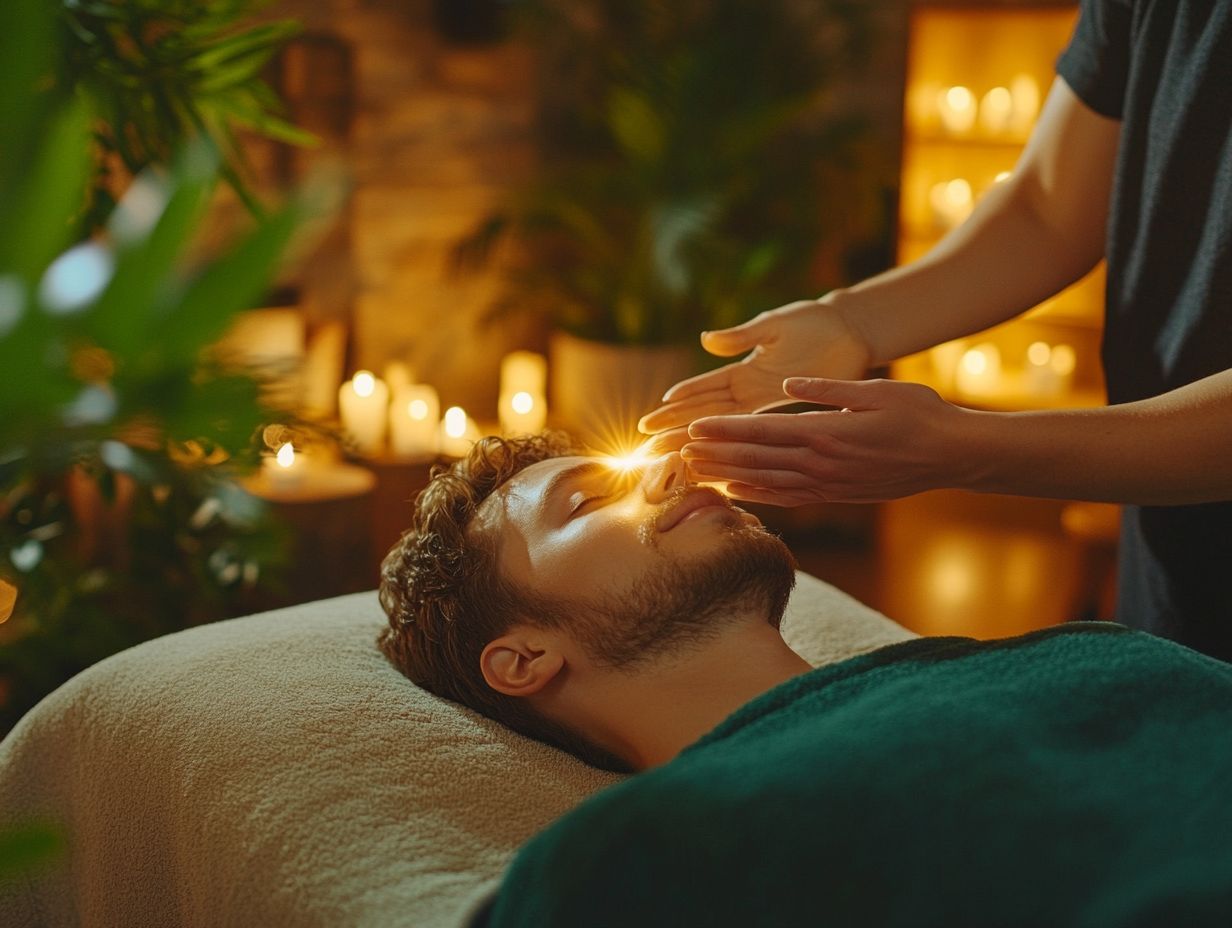
Modern adaptations of Reiki fit seamlessly into today s wellness practices. They are now recognized by healthcare professionals as valuable complementary therapies.
This evolution shows a growing appreciation for whole-person approaches to physical and emotional challenges. It’s a blend of traditional techniques and contemporary science.
In many medical settings, Reiki is increasingly offered to patients seeking relief from stress, pain, and anxiety. This often enhances conventional treatments.
Research supports its effectiveness. Clients share vivid accounts of its positive impact on their well-being.
Healthcare professionals note improvements in patient outcomes. Reiki fosters calmness and nurtures healing in a supportive environment.
The Benefits of Reiki
The benefits of Reiki are remarkable. This practice enhances your physical and emotional well-being while promoting relaxation and reducing stress.
Embracing Reiki can lead to a more balanced and harmonious life.
Physical and Emotional Healing
Reiki is known for its ability to facilitate physical and emotional healing by addressing energy blocks. This gentle practice encourages relaxation and awareness, helping you find pain relief and improved health.
Many report reduced chronic pain, including migraines and joint discomfort, after sessions. Reiki also helps manage anxiety and emotional stress.
Clients often feel a newfound calm and emotional strength after treatments. This showcases the holistic benefits of this ancient technique.
Stress Reduction and Relaxation
Stress reduction and relaxation are core benefits of Reiki. It induces a relaxation response that calms the nervous system.
This calming effect lowers cortisol, the main stress hormone, promoting tranquility and emotional balance. Clients often experience a deep sense of peace during and after sessions.
Scientific studies show that relaxation techniques can improve blood circulation and boost immune function. This leads to overall well-being.
By encouraging mindfulness and deeper self-connection, Reiki sessions become more than just therapy. They offer a holistic approach to stress management, nurturing a healthier lifestyle.
How Reiki Works
Understanding Reiki involves exploring energy flow. Trained practitioners channel healing energy through pathways in your body.
The Concept of Energy Flow

Energy flow in Reiki is based on the idea that life force energy can become blocked. This can lead to various physical and emotional issues.
This belief aligns with principles of quantum physics, where energy flows in waves and is influenced by observation. Practitioners identify areas of stagnation in your energy field.
Energy blocks often feel like tension or discomfort and may relate to deeper emotional issues. Techniques to clear these obstructions enhance energy flow and improve your health.
The Role of the Reiki Practitioner
The role of a Reiki practitioner is crucial in your healing journey. They channel healing energy to help you achieve balance and well-being throughout your session.
Practitioners typically undergo extensive training to refine their skills in energy healing techniques. They master how energy moves within our bodies and learn various Reiki symbols.
During your sessions, they create a safe and calming environment that encourages relaxation and openness. This allows you to release emotional and physical tension.
They don t just administer energy; they also guide you through visualization and breathwork, enhancing your overall experience.
By actively listening and observing your responses, they tailor their approach. This ensures that the energy therapy is both effective and personalized to support your unique healing journey.
Receiving Reiki Treatment
Experiencing Reiki treatment is a unique journey that often leaves you feeling profoundly relaxed and rejuvenated.
This serene environment not only promotes healing but also invites a sense of tranquility that enhances your overall well-being.
What to Expect During a Session
During a Reiki session, you can expect a peaceful atmosphere designed for relaxation. Various techniques are employed to facilitate the flow of healing energy.
The setting is typically tranquil, often enhanced by soft lighting and gentle music, creating a soothing environment that allows you to unwind completely.
Practitioners may guide you through breathing exercises and visualization techniques. This promotes a deeper state of relaxation and prepares you for profound healing.
As the session progresses, you might experience sensations of warmth or tingling as energy flows throughout your body. Many individuals find themselves entering a meditative state, amplifying their feelings of inner peace and well-being.
The cumulative effects of this energy therapy not only relieve stress but also support rejuvenation and emotional balance. You will leave feeling refreshed and more in tune with your inner self.
Choosing a Reiki Practitioner
Finding the right Reiki practitioner can transform your healing journey! When making this important decision, consider several factors.
First, assess the practitioner s training and qualifications. Established programs often provide a solid foundation in energy healing principles. Look for those who have undergone extensive training and hold certifications from reputable organizations.
Experience also matters; a practitioner who has worked with diverse clients may have developed the intuitive skills necessary to tailor sessions effectively to your needs. Don t hesitate to verify their credentials and ask about their healing philosophy.
Gather recommendations from friends or check online reviews. This can be invaluable in helping you make a well-informed choice, ensuring you find someone who truly resonates with you.
Frequently Asked Questions

What is Reiki and how does it work?
Reiki is a popular energy healing method that originated in Japan. It involves using hands to transfer energy from the practitioner to the recipient, promoting physical, emotional, and spiritual healing. For those interested in a deeper understanding of this practice, exploring the history of energy healing practices reveals how this process works by balancing the energy within the body, allowing it to flow freely and promoting relaxation and overall well-being.
Is Reiki a religious practice?
No, Reiki is not a religious practice. It is a spiritual practice focused on promoting healing and well-being by balancing the body’s energy. It is open to people of all religions and beliefs.
Can anyone learn and practice Reiki?
Yes, Reiki is a simple and natural healing method that anyone can learn and practice. It does not require any special abilities or prior knowledge. However, it is recommended to receive training from a certified Reiki practitioner to learn the proper techniques and methods.
What are the benefits of exploring Reiki as an energy healing method?
- Relaxation
- Stress reduction
- Improved emotional well-being
- Pain relief
- Overall improvement in physical and mental health
- Promotion of spiritual growth and self-awareness
Don t wait choose someone who resonates with you and start your healing journey today!
Are there any side effects of Reiki?
No known side effects of Reiki exist. This gentle healing method focuses on the recipient’s highest good.
Some people might feel emotional release or tiredness after a session. This is a normal sign that healing is taking place.
How often should I receive Reiki sessions?
The frequency of Reiki sessions varies for each individual. Some may thrive with regular sessions, while others may only need them occasionally.
It’s essential to discuss with your Reiki practitioner. Listen to your body to find the right frequency for you.

